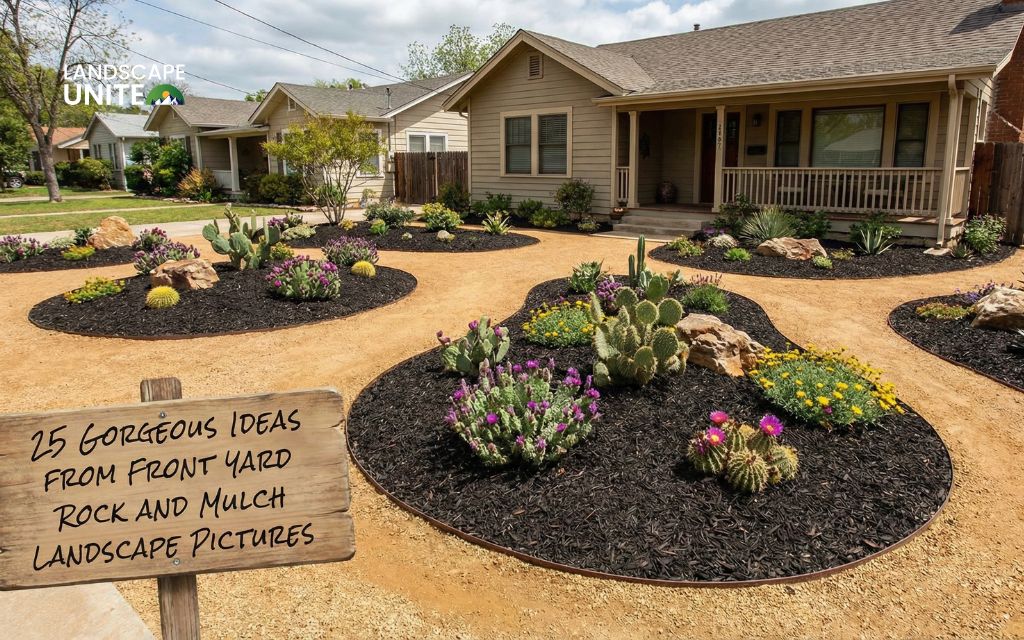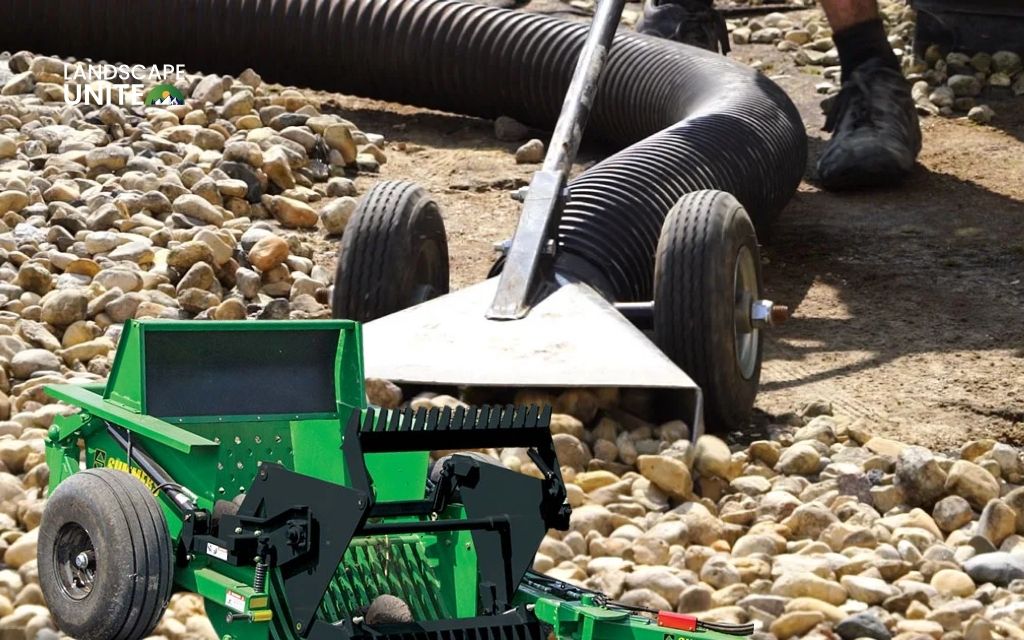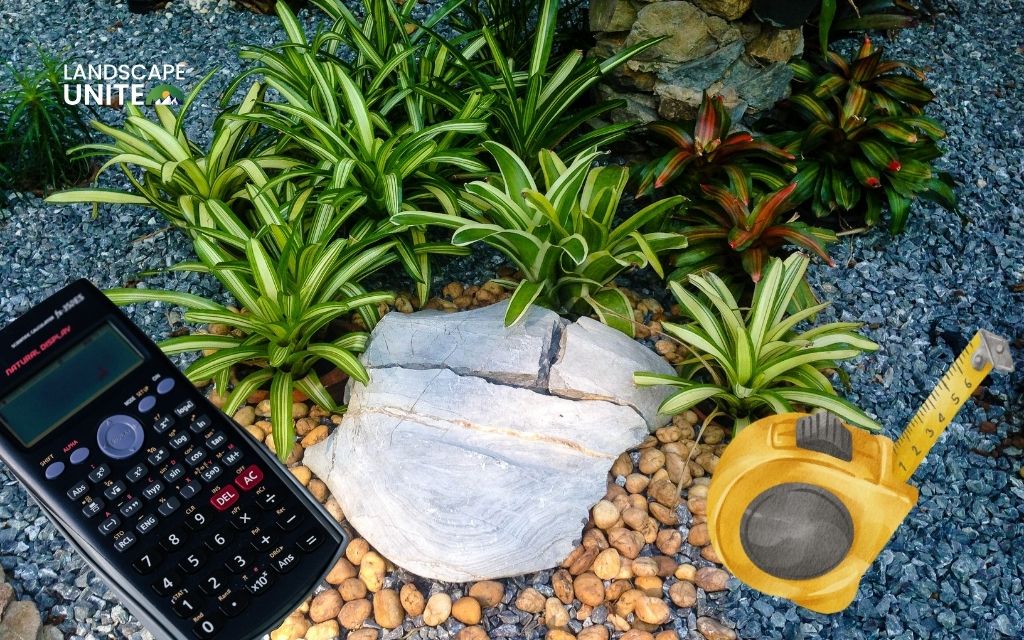Creating stunning flower beds flowers doesn’t have to feel overwhelming or time-consuming. The secret lies in choosing the right combination of blooming flowers that deliver vibrant flowers and all-season color with minimal maintenance.
Whether you’re designing your first flower bed or renovating existing garden spaces, these 15 proven performers will transform your landscape into a colorful showcase. Each variety has been selected for exceptional blooming performance, easy care requirements, and ability to thrive in typical American garden conditions.
From non-stop blooming annual flowers to reliable perennial plants that return year after year, you’ll discover the perfect flowers for flower beds that stay colorful when others fade. These garden champions make beautiful, low maintenance flower bed plants achievable for any homeowner.
Annual flowers for continuous blooms
Annual flowers are the workhorses of flower beds flowers, providing non-stop color from planting until the first frost. These easy flowers for flower beds deliver instant gratification and continuous blooms throughout the growing season.
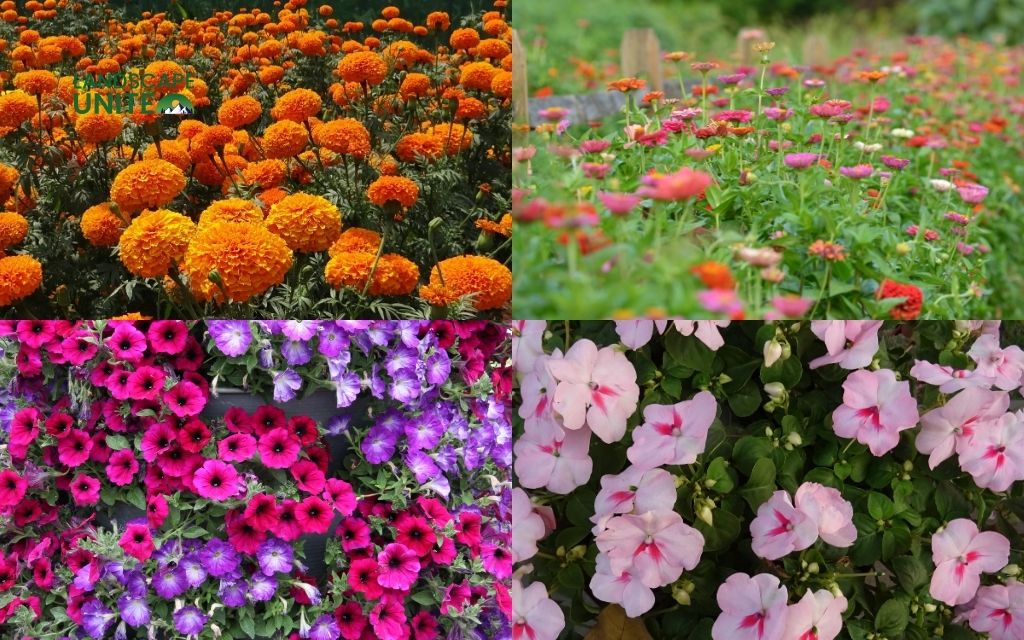
Marigolds: The ultimate easy care champions
- Bloom time: Spring to first frost
- Colors: Orange, yellow, red, burgundy
Marigolds top our list of best flowers for flower beds because they’re virtually foolproof. These drought tolerant flowers for flower beds offer pest-repelling properties while delivering continuous blooms in any soil type. French marigolds work perfectly for borders, while African varieties add height to back rows.
Simply deadhead spent blooms regularly to encourage more flowers. Their reliability makes them ideal for beginners seeking low maintenance flower bed plants.
Zinnias: Butterfly magnets with endless variety
- Bloom time: Summer through fall
- Colors: Every color except blue
Zinnias are true champions among top flowers that bloom all summer. These cut-and-come-again flowers attract butterflies and hummingbirds while providing exceptional seasonal interest. The ‘State Fair Mix’ offers impressive height, while ‘Profusion’ series works beautifully in compact beds.
Once established, zinnias become remarkably drought tolerant and self-seed readily for next year’s garden.
Petunias: Cascading color machines
- Bloom time: Spring to frost
- Colors: Purple, pink, white, red, yellow, striped
Modern petunias rank among the best blooming flowers all season due to self-cleaning varieties that need no deadheading. Wave series petunias spread beautifully, while Supertunia varieties excel in containers and mixed plantings.
Regular feeding produces more blooms and extends their already impressive blooming period.
Impatiens: Shade garden superstars
- Bloom time: Late spring to frost
- Colors: Pink, red, white, orange, purple
Impatiens shine where other flower varieties struggle. These shade-tolerant flowers for flower beds thrive in locations that receive limited sunlight. New Guinea impatiens offer improved sun tolerance for versatile garden design.
Keep soil consistently moist for best performance in shaded flower beds.
Begonias: Versatile beauty for any garden
- Bloom time: Spring to frost
- Colors: Red, pink, white, yellow, orange
Begonias excel as adaptable flowers for flower beds, working equally well in sun or shade locations. Wax begonias perform beautifully in garden beds, while tuberous varieties add drama to container plantings.
Pinch spent blooms and provide moderate watering for optimal continuous blooms.
Sunflowers: Bold statement makers
- Bloom time: Mid-summer to fall
- Colors: Yellow, red, orange, burgundy, cream
Sunflowers create dramatic focal points while attracting birds with their edible seeds. ‘Autumn Beauty’ offers multi-colored blooms, while dwarf varieties work perfectly in smaller flower beds flowers arrangements.
Support taller varieties and enjoy their drought tolerant nature once established.
Cosmos: Delicate beauty with tough performance
- Bloom time: Summer to frost
- Colors: Pink, white, orange, yellow, burgundy
Cosmos prove that flowers for flower beds can be both beautiful and low maintenance. These self-seeding flowers attract beneficial insects while thriving in poor soils with minimal care.
‘Sensation Mix’ provides height for back borders, while ‘Sonata’ offers compact growth for front plantings.
Celosia: Unique textures and long-lasting color
- Bloom time: Summer to frost
- Colors: Red, pink, yellow, orange, purple
Celosia brings unique texture to flower beds flowers with excellent heat tolerance. These drought tolerant flowers also work as exceptional dried flowers. Cockscomb varieties offer distinctive shapes, while plume types provide soft, feathery texture.
Perennial plants for long-term garden investments
Perennial flowers follow the “3-year rule” that professional landscapers understand: they sleep the first year, creep the second year, and leap the third year. This makes them excellent long-term investments for flower beds flowers.
Daylilies: The perfect perennial
- Bloom time: Various seasons depending on variety
- Colors: Yellow, orange, red, pink, purple, near-white
Daylilies earn recognition as virtually maintenance-free perennial flowers. These reliable flowers multiply over time, providing increasing value. ‘Stella de Oro’ offers repeat blooms, while ‘Happy Returns’ stays compact.
Divide clumps every 3-4 years and enjoy their drought tolerance once established.
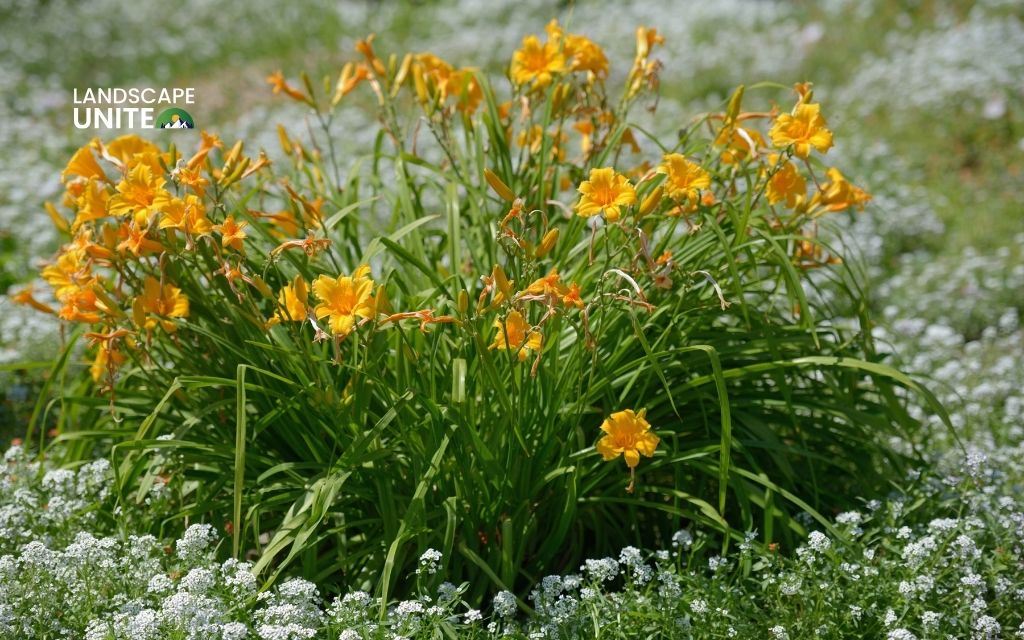
Black-eyed Susan: Native American beauty
- Bloom time: Mid-summer to fall
- Colors: Yellow with dark centers, orange varieties
Native Black-eyed Susan (Rudbeckia) attracts butterflies and birds while providing exceptional year round color. ‘Goldsturm’ offers reliable performance, while ‘Cherokee Sunset’ adds orange tones.
These flowers self-seed readily and benefit from fall cutting for fresh spring growth.
Purple coneflower: Wildlife favorite
- Bloom time: Summer to fall
- Colors: Purple, pink, white, yellow, orange
Purple Coneflower (Echinacea) ranks among top flowers for flower beds that attract butterflies while feeding birds with nutritious seeds. ‘Magnus’ produces large blooms, while newer hybrid varieties expand color options.
Leave seed heads for winter interest and natural wildlife feeding.
Salvia: Spiky elegance all season
- Bloom time: Late spring to frost
- Colors: Blue, purple, red, pink, white
Salvia provides deer-resistant flowers that attract butterflies while offering long-lasting blooms. ‘May Night’ perennial varieties return annually, while ‘Victoria Blue’ annual types provide season-long color.
Deadhead regularly for continuous blooms and appreciate their drought tolerant nature.
Coreopsis: Cheerful yellow sunshine
- Bloom time: Early summer to fall
- Colors: Yellow, pink, red, bicolors
Coreopsis delivers cheerful, long-lasting blooms with self-seeding capabilities. ‘Moonbeam’ offers delicate texture, while ‘Zagreb’ provides compact growth perfect for front borders.
Shear plants back mid-season to encourage fresh growth and extended blooming.
Sedum: Succulent beauty for tough spots
- Bloom time: Late summer to fall
- Colors: Pink, red, white, yellow
Sedum excels as extremely drought tolerant flowers that attract butterflies during late-season blooming. ‘Autumn Joy’ provides reliable performance, while ‘Dragon’s Blood’ works as attractive ground cover.
These low maintenance flower bed plants require minimal watering once established.
Phlox: Fragrant clusters of color
- Bloom time: Mid to late summer
- Colors: Pink, purple, white, red, salmon
Phlox combines sweet fragrance with butterfly-attracting blooms. Garden phlox adds height to back borders, while creeping varieties work as colorful ground cover.
Ensure good air circulation to prevent powdery mildew issues.
Design strategies for maximum impact
Creating cohesive flower beds flowers requires thoughtful planning that considers color combinations, height arrangements, and seasonal interest. Professional landscapers recommend following these design principles for stunning results.
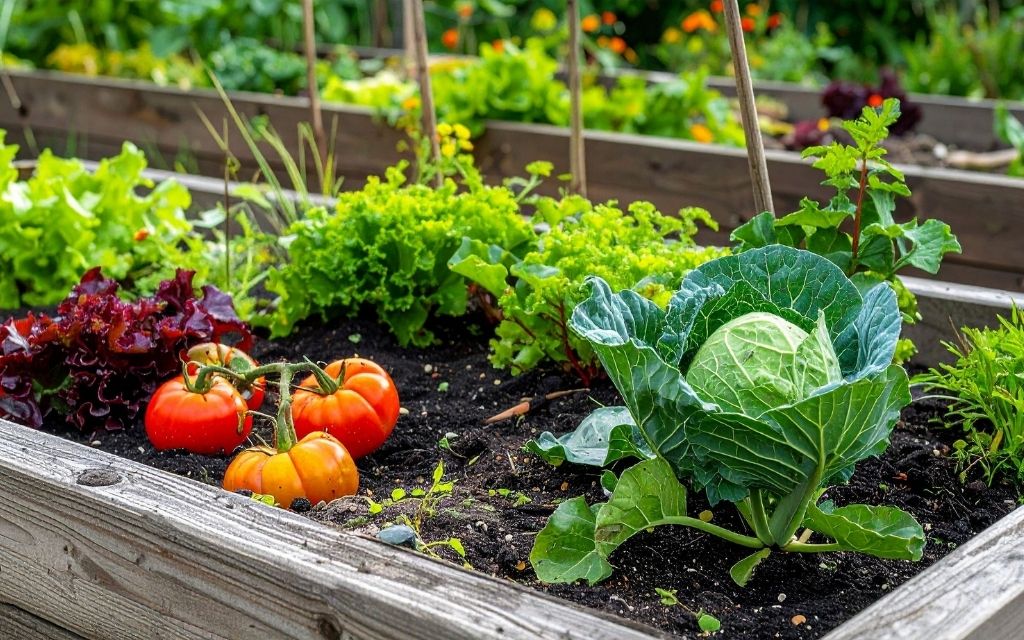
Color combinations that work
Pair warm and cool colors for visual interest throughout your flower beds. Use white flowers to brighten darker corners and repeat specific colors throughout the bed for unity. This creates visual flow that guides the eye naturally through your landscape design.
Height and spacing guidelines
Arrange tall flowers like sunflowers and phlox in back rows, medium-height varieties like marigolds, zinnias, and most perennials in middle sections, and low growers like petunias, impatiens, and begonias along front edges.
Proper spacing prevents overcrowding while allowing each plant to reach full potential. This strategic placement maximizes the impact of your flower beds flowers while ensuring healthy growth.
Seasonal maintenance for continuous blooms
Maintaining flower beds flowers becomes significantly easier when you follow a structured seasonal approach. Proper mulching twice yearly can reduce maintenance by up to 70%, making your garden more sustainable and enjoyable.
Spring preparation
Plant cool-season annual flowers early in the season and divide perennial plants every 3-4 years. Apply slow-release fertilizer to support vigorous growth and abundant blooms throughout the growing season.
Summer care
Deadhead spent blooms regularly to encourage continuous blooms. Water deeply but less frequently to develop strong root systems. Mid-season shearing of certain perennials promotes fresh growth and extended flowering periods.
Fall maintenance
Plant fall-blooming varieties for extended seasonal interest. Collect seeds from favorite flowers for next year’s garden. Leave perennial seed heads to provide winter interest and natural bird feeding stations.
Integration with modern landscape design
Today’s American gardens favor low maintenance designs with 4-season interest. Integration of native plants reduces water usage by 30-50% compared to traditional flower beds flowers, making them more environmentally sustainable and cost-effective.
Modern flower bed design emphasizes geometric shapes and mass plantings over cottage garden styles. This approach creates more dramatic visual impact while simplifying maintenance requirements.
Discover expert landscape guidance with Landscape Unite
At Landscape Unite, we provide homeowners with expert-tested recommendations and proven methods for creating stunning outdoor spaces. Our comprehensive blog delivers the best information about landscaping, hardscaping, gardening, and tools for everyone, backed by the professional experience of Mile High Lifescape.
Whether you need detailed guidance on flower bed design, plant selection advice, or comprehensive landscape planning, our resources help you achieve professional-quality results.
Ready to elevate your landscape? Subscribe to the Landscape Unite blog for more expert gardening tips and discover new posts that will transform your outdoor spaces. For personalized flower bed design consultation and professional installation services, visit Mile High Lifescape to connect with experienced landscape professionals who can bring your garden dreams to life.
Conclusion
Ready to create spectacular flower beds flowers? Start with 3-4 varieties from this proven list that match your specific growing conditions. Plant a strategic mix of annual flowers for instant color and perennial plants for long-term value.
Remember that properly designed flower beds can increase property value by 5-15%, making them excellent investments in your home’s curb appeal and your family’s enjoyment of outdoor spaces.
The best flower beds flowers combine reliable performers with your personal preferences and site-specific conditions. Smart irrigation systems can reduce maintenance time by 80%, allowing you to enjoy beautiful gardens with minimal effort.
FAQs about flower for beds flowers
Which flowers are best for beginner gardeners?
Marigolds, zinnias, petunias, and daylilies are the most foolproof options, requiring minimal care while delivering maximum impact. For professional guidance on plant selection for your specific conditions, consult experienced landscape professionals.
How many flower varieties should I plant together?
Choose 3-5 varieties maximum for cohesive flower beds flowers. Combine 2-3 annual flowers with 2-3 perennial plants for year-round interest without overwhelming the space.
Which flowers work best in partial shade?
Impatiens, begonias, coneflowers, and phlox tolerate partial shade well, with impatiens being the top performer in shaded conditions. For detailed shade garden design, seek professional landscaping advice.
Can all these flowers grow in the same climate?
Most perform well in USDA zones 4-9, though specific hybrid varieties may have different requirements. Annual flowers adapt to any zone, while perennial flowers have specific zone requirements that professionals can help you navigate.
How long do these flowers bloom?
Annual flowers bloom continuously from planting until frost. Perennial flowers have specific 6-12 week blooming periods, which is why combining varieties ensures constant color throughout the growing season.
